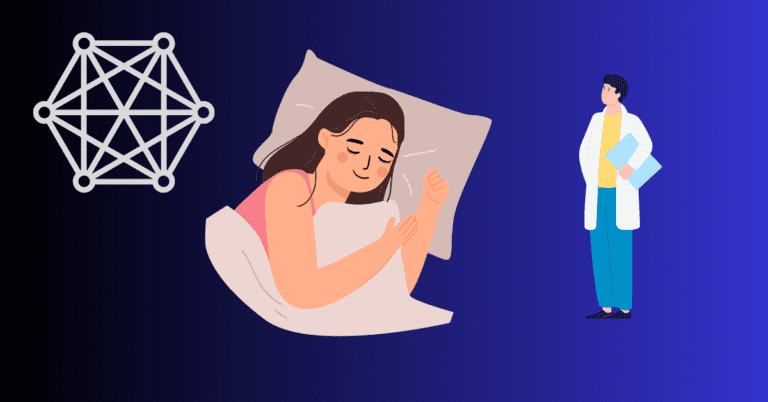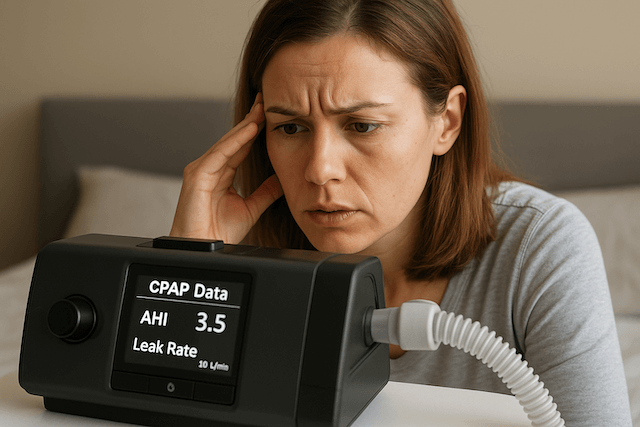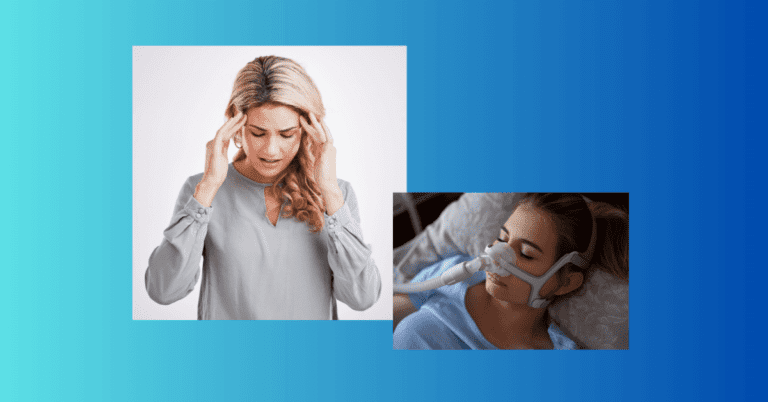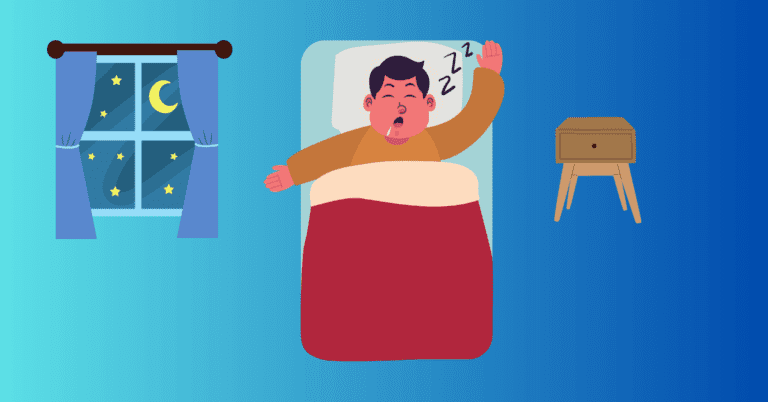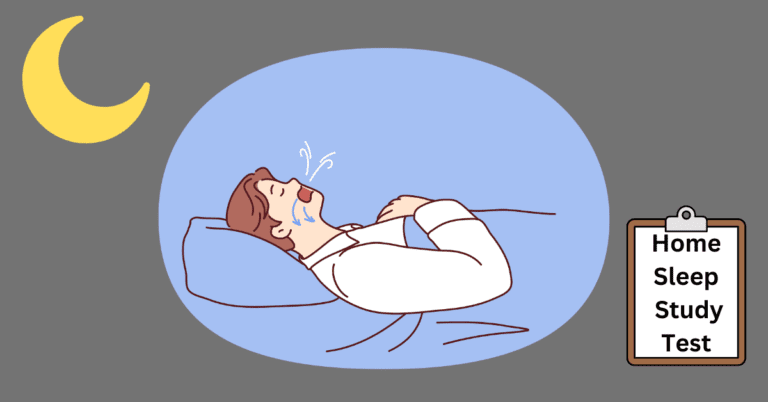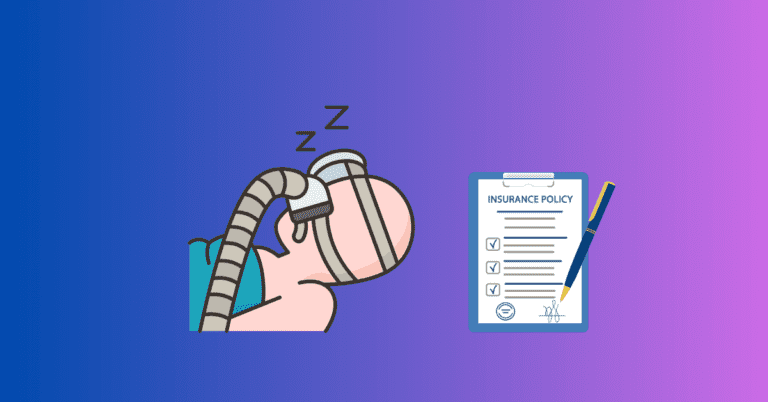Can You Reverse Sleep Apnea Naturally? 🌿
Jeremy Smith is a long-term CPAP user and sleep apnea advocate. After being diagnosed with severe obstructive sleep apnea, he created ByJeremySmith.com to help others navigate CPAP therapy through personal stories, gear reviews, and practical advice.
When I was diagnosed with severe obstructive sleep apnea, I wanted to find out if there was a way to fix it without being tied to a machine forever.
I lost 20 pounds and ate healthier, but some stories don’t have a happy ending, and I do need to have a CPAP machine for the rest of my life.
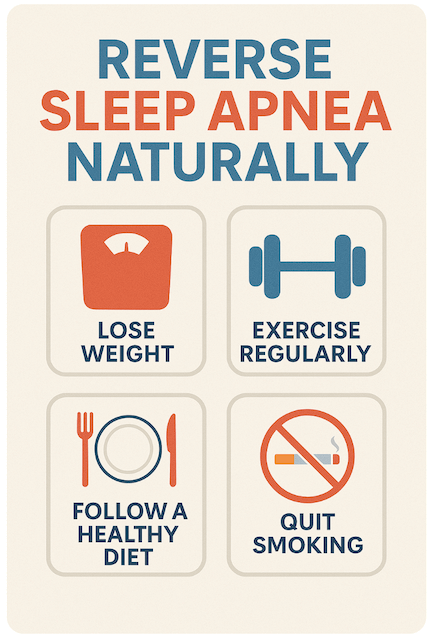
For you, it might be different, but please remember I have no medical training so just read this as just information 🙂
The truth? Sleep apnea can be reversed or at least improved significantly for some people.
But like mine, it depends on the type and severity of your condition.
Here’s a breakdown of natural methods backed by research—and how to know if they might work for you.
🧠 What Is Sleep Apnea?
Sleep apnea is a sleep disorder where your breathing repeatedly stops and starts during the night.
The most common form is:
- Obstructive Sleep Apnea (OSA) – when your throat muscles relax too much, blocking airflow
- Less common types:
- Central Sleep Apnea (CSA) – the brain doesn’t send proper breathing signals
- Complex Sleep Apnea – a mix of both
This article focuses on OSA, where natural solutions can have the most significant impact.
✅ Natural Ways to Improve or Reverse Sleep Apnea
⚖️ 1. Lose Excess Weight
Why it matters: Fat around the neck and upper airway can narrow the breathing passage, increasing obstruction during sleep.
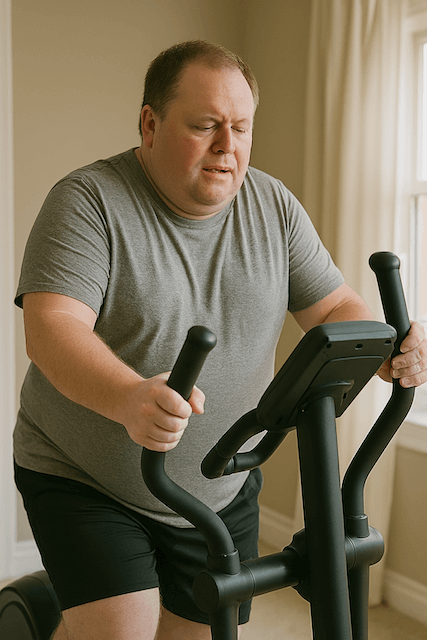
📚 Research: A 2011 study published in the American Journal of Respiratory and Critical Care Medicine found that losing 10–15% of body weight could reduce OSA severity by up to 50%.
➡️ Read the study
Tips:
- Eat fewer processed carbs and sugars 🍞
- Walk or do light cardio 5 days a week. 🏃♂️
- Try intermittent fasting or portion control if it works for your body ⏱️
When I dropped just 20 pounds, I felt much better about myself. It didn’t change my CPAP diagnosis, but it might help you.
🛌 2. Change Your Sleep Position
Why it matters: Sleeping on your back makes your tongue and soft palate more likely to fall backward and block the airway.
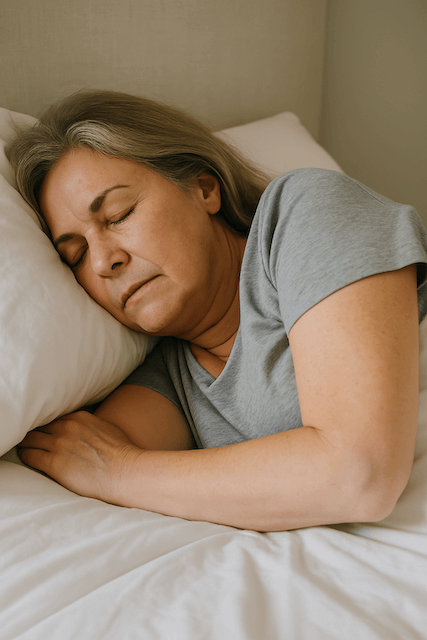
📚 Research: A 2009 study found that over 50% of OSA patients had “positional OSA,” meaning their symptoms worsened while back sleeping.
➡️ Read the study
Try this:
- Sleep on your side using a body pillow
- Use a wedge pillow to elevate your upper body
- Try the tennis ball method 🎾 to stay off your back
🎤 3. Throat & Tongue Exercises
Why it matters: Weak muscles in your tongue, soft palate, and throat contribute to airway collapse.
📚 Research: A 2009 randomized trial in American Journal of Respiratory and Critical Care Medicine found that daily oropharyngeal exercises reduced AHI by 39% in moderate OSA.
➡️ Read the study
Exercises to try:
- Tongue slides (run your tongue along the roof of your mouth) 👅
- Balloon blowing or straw breathing 🥤
- Singing or exaggerated vowel sounds 🎶
Even 10 minutes a day can start making a difference in 4–6 weeks.
🚭 4. Quit Smoking & Cut Back on Alcohol
Why it matters: Smoking causes airway inflammation and alcohol relaxes throat muscles—bad combo for apnea.
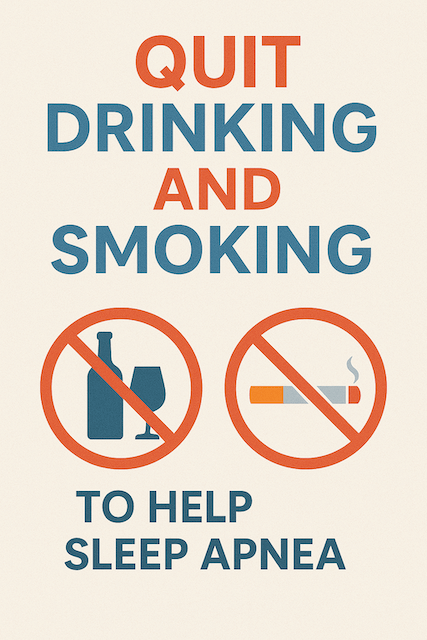
📚 Research: The Mayo Clinic confirms that smoking and alcohol both worsen sleep apnea symptoms.
➡️ Source
Try this:
- Quit smoking with help from patches or support groups 🚬
- Cut off alcohol at least 3 hours before bed 🍷
- Sip herbal teas (like valerian or chamomile) instead ☕
I noticed a big difference in morning grogginess when I stopped having wine in the evenings.
🌬️ 5. Clear Your Nasal Passages
Why it matters: If your nose is blocked, you’ll breathe through your mouth, which can worsen OSA.
📚 Research: Nasal obstruction is associated with increased upper airway resistance, according to the NIH.
➡️ Source
Fixes:
- Use a saline rinse or neti pot 💧
- Try Breathe Right nasal strips 👃
- Diffuse eucalyptus or peppermint oil before bed 🌿
A humidifier in dry weather helps too!
🧘 6. Build a Sleep-Friendly Routine
Why it matters: Poor sleep hygiene makes your body more prone to apnea events—and increases stress and inflammation too.
📚 Research: According to the National Heart, Lung, and Blood Institute, healthy sleep habits improve overall sleep quality and support treatment of OSA.
➡️ Source
Make these habits stick:
- Sleep and wake at the same time daily ⏰
- Avoid screens and blue light before bed 📱
- Keep your bedroom cool, quiet, and dark 🌌
😬 7. Try a Mouth Device (MAD)
Why it matters: Mandibular advancement devices (MADs) pull your lower jaw slightly forward to keep your airway open.
📚 Research: Studies show MADs can be effective for mild to moderate OSA and are recommended by the American Academy of Sleep Medicine.
➡️ Source
Options:
- Get one custom-fitted by a sleep dentist 😁
- Or try a boil-and-bite version to test it out 🛒
They’re not for everyone, but they’ve helped plenty of CPAP-intolerant users.
🤔 Can Natural Methods Replace CPAP?
Sometimes—but not for everyone.
If you’ve got mild OSA, consistent lifestyle changes may be enough. But if your sleep study shows moderate or severe apnea, CPAP is still the most effective treatment.
📚 Source: American Academy of Sleep Medicine – CPAP remains first-line therapy
I use my CPAP every night. But after losing weight, changing sleep positions, and adding mouth exercises, I needed lower pressure—and I feel way more rested.
🌿 What About Supplements?
There’s no magic pill for sleep apnea—but a few supplements may help with sleep quality:
- Magnesium – relaxes muscles, reduces nighttime twitching
- Melatonin – can help regulate your sleep-wake cycle
- Valerian root – a natural sedative herb (may help calm you pre-sleep)
📚 Evidence: The NIH notes that more research is needed, but some supplements may support sleep hygiene in OSA patients.
➡️ Source
Talk to your doctor before adding anything new.
🚨 When NOT to Rely on Natural Fixes Alone
If you:
- Snore loudly and regularly
- Wake up gasping or choking
- Have been diagnosed with moderate or severe sleep apnea
- Struggle with high blood pressure, migraines, or fatigue
Don’t gamble with your health. Get a sleep study. Use your CPAP. Then layer in natural tools to support your therapy.
Final Thoughts: Can You Reverse Sleep Apnea Naturally?
In some cases—yes. Especially if it’s mild. But for most of us, it’s about improving symptoms, reducing pressure needs, and living better with therapy, not without it.
My CPAP saved my life. But natural changes helped me take control of it. And if you’re ready to do the same, the tips above are a great place to start.
Thanks for reading this reverse sleep apnea naturally article. Any questions? please elave them below,
Disclaimer: The content on this blog is for informational and educational purposes only and is not a substitute for professional medical advice. Always speak with your doctor or sleep specialist before starting, stopping, or changing any treatment or therapy related to sleep apnea or CPAP use.
